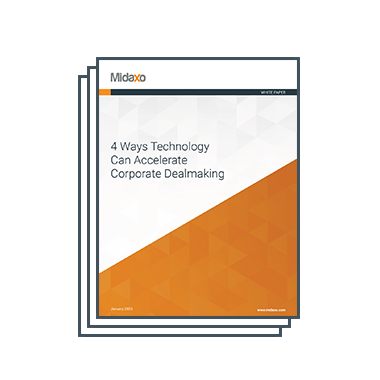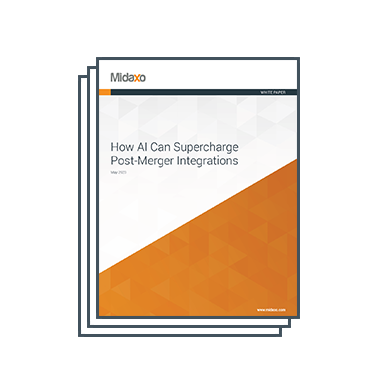Deal sourcing is fundamental to M&A activity and represents the first stage of any transaction. Put simply, it involves creating leads and managing relationships with intermediaries so as to bring about a deal.
Approaches to deal sourcing vary between firms. Some companies engage investment banks or other advisors dedicated to deal sourcing, while others utilize in-house resources by employing a dedicated deal origination team.
Traditionally, deal sourcing has relied on having a wide network of contacts and a strong reputation in the marketplace. Perhaps the stereotypical image of golf course networking at the proverbial 19th hole springs to mind. However, technology is increasingly becoming an important tool for deal sourcing.
This is partly because vendors (corporates or private equity houses) seek to place deals more widely to the market. Acquirers/investors also look to tap into the widest pool of potential deals and expedite the deal process from the outset.
The way in which deals can be sourced depends partly on market conditions. At certain times there may be an abundance of capital chasing too few deals, which can make deal sourcing difficult and result in a protracted auction process (whereby a vendor may market the company for sale more widely to achieve the best price).
Conversely, if the number of buyers and sellers is in equilibrium, deals can be found more easily. In either case, it is important that any prospective acquirer/investor has a deal sourcing/origination strategy to maximize the chance of an M&A strategy being successfully realized.
There are myriad ways in which a deal sourcing strategy can be supported – with the most common being:
- investment banks
- in-house origination team
- online platforms
- other intermediaries and networks
- trade shows and conferences

At the large end of the deal space, investment banks are the foremost sources of deals. Many large companies looking to acquire/invest will engage with investment banks for buy-side advice on suitable acquisition/investment targets.
The process typically involves the management team of the acquiring company to initially assess the market and identify strategic opportunities, threats, risks and value drivers. With the support of an investment bank, the acquiring company will seek to build an M&A pipeline by identifying suitable targets with operations, product/services and geographies matching those already in existence or those matching a new direction in which the acquirer wishes to move.
Rather than a bulge bracket investment bank, a buyer may opt to engage a boutique investment bank, corporate finance advisor, or even a Big 4 firm. While a boutique may possess a more limited database of companies and fewer resources in terms of analysts researching the market, the targets they provide are specialized.
As an example, a boutique may specialize in the TMT sector – enabling them to be more readily informed when it comes to suitable companies potentially agreeable to entering a deal process.
Investment banks can also represent target companies and run a sell-side process. They typically have a large database of potentially acquisitive companies and possess significant resources in terms of dedicated analysts working to gather information on companies and pitch ideas to prospective buyers/investors in order to generate a deal.
Working on the sell-side, an investment bank will represent the interests of a company looking to sell in its entirety or spin off selected assets/divisions (divest). The sell-side process typically involves writing a sales memorandum or pitch book and contacting potential buyers/investors.
On balance, deals sourced by investment banks are most likely to pass the litmus test in terms of suitability by meeting the minimum quality threshold of the acquirer/investor, and therefore are more likely to successfully close.

Making use of an in-house deal origination team is a strategy employed by many companies – both at the large and mid-market level – and one conceived by private equity firms. One of the key advantages of such a strategy is that deal sourcing is continuous and not limited to the times at which an investment bank (or other external advisor) is engaged to find a suitable target(s).
An in-house team will possess extensive knowledge of the sector in which the acquirer is operating. They will also have a keen eye on key competitors, which may be deemed suitable acquisition targets. Furthermore, if the acquiring company is operating in a close-knit market it is possible that rumors of a competitor considering a sale may surface, which an in-house team can react to. Another benefit of utilizing an in-house team is that if a deal is sourced in-house, a significant “finder fee” will not have to be paid to an investment bank (or other intermediary).
Finally, deals originated in-house can be orchestrated to fit the exact strategic objectives of the company without entering an auction process, which is sometimes the case when directly engaging an intermediary such as an investment bank to source a deal. A downside to in-house origination is that deals often take longer to come to fruition and carry the risk of the vendor ultimately deciding not to sell if an off-market approach has been made to acquire a target.

Other intermediaries, such as lawyers, consultants, and asset managers, can be a key source of deals, particularly when acting for a vendor. While typically less experienced in running an M&A process, an intermediary such as a lawyer or consultant is likely to have extensive knowledge of a company looking to sell if they have acted for them.
Although this type of intermediary is typically not active in sourcing deals and is likely to have significantly less experience in the deal making process, they will have regional and industry knowledge matching that of the acquiring/investing company. This makes networking with such intermediaries quite valuable.
It is notable, however, that unless the acquiring/investing company has a demonstrable track record of closing deals they will not be at the top of mind for these intermediaries and will most likely not be presented with the best opportunities. Said another way, building relationships, outlining acquisition/investment criteria and tapping into networks with intermediaries can be crucial to sourcing deals before the competition arrives.

Online Deal Platforms
There has been a proliferation of online deal sourcing platforms in recent years, where buy- and sell-side parties can exchange information to a wider audience than would be typical for an ordinary M&A process conducted by an investment bank, for instance. Online platforms can provide an excellent way to expose a deal to multiple parties in unison while providing a vendor with access to trade and private equity buyers in real-time.
Rest assured, these are not bulletin-style websites (nor are they purpose-built M&A software), but rather sophisticated platforms delivering insightful information on everything VC/PE and M&A related. Platforms such as PitchBook and Crunchbase incorporate company research (key private company financials and full public company financials), valuations, terms and multiples, cap tables, deal histories, exits and IPOs, investor portfolios, venture capital placing, news, analysis and custom analytics.
A key benefit of an online platform is that deal makers can find counterparts they otherwise would not have found if going via the more traditional M&A routes. Furthermore, platforms help identify the right deal more quickly and cheaply and can avoid a situation of several costly aborted deals before a successful deal completion is achieved.
The algorithms driving online deal sourcing platforms are based on specific submitted deal and acquisition/investment criteria. More accurate matching of buyers and sellers fosters shorter marketing times to identify and engage with the right buyer (or multiple buyers if an auction process is being considered) which results in a shorter and more efficient deal process overall.
For acquisitive companies and private equity firms, online deal sourcing offers the safeguard of minimizing the chance that a key deal is missed, in addition to a range of tools to effectively appraise companies, industries and geographies which, previously, may have been cost-ineffective to cover.
Relatively speaking, deal platforms are still in their infancy, with some M&A advisors, acquiring companies and vendors being reluctant to embrace them. However, it is likely that going forward deals will increasingly be discovered and evaluated online with deal platforms constituting a new norm in the pipeline management and M&A due diligence phases.

Trade Shows & Conferences
Trade shows and conferences were traditionally the bread and butter of deal sourcing. They offer the chance for companies operating within the same sector to come together and for acquisitive companies to scope out a potential target and speak with key management. However, they are becoming more niche in their focus and with the plethora of company information available online (downloadable product guides and even company financial statements, for instance) they are becoming less central to deal sourcing.

Company Spin-off & Private Equity Divestment
Companies themselves may be the source of deals. For instance, a technology company may be looking to incorporate new tech while deprecating the old. For acquisitive companies looking to acquire older technology to fill “product holes” this could present a potential deal source.
Similarly, a change in strategy may lead to a company spinning off certain business units/assets, which do not help the company achieve its objectives but which may be attractive to certain acquirers. A private equity firm, for instance, may be looking to divest of an investment – this is becoming increasingly more common in the technology sector, where a private equity firm has invested in an early stage company, benefitted from its exponential growth and is looking to exit – therefore presenting a secondary buyout/investment opportunity for an acquirer/investor.





